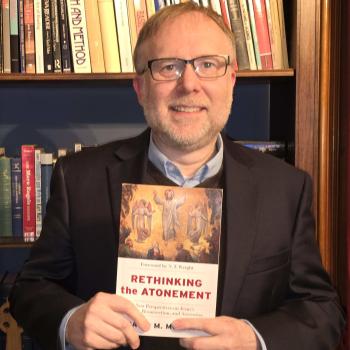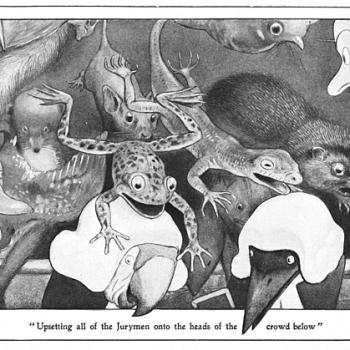In the late stages of my M.A. education in early 2000, when I was heavily steeped in queer theology, I was given a suggestion to join a particular email list on the service OneList (before it was bought out by Yahoo!Groups) called "QueerTheology_BEYOND." I had many useful discussions and interactions there while it was thriving, and am thankful for having done so. The "BEYOND" in the group's name referred to the desire of the group's founder for the discussion to go beyond "coming out theology" in relation to queerness, and the group stayed very well on track in terms of not focusing upon, or even occasionally touching upon, that particular topic.
But, what did the group's founder mean by that? What is "coming out theology"?
The majority of people in the group were from monotheistic religions, though some were post-monotheists or atheists, or a smattering of various other religious viewpoints. As a result, the theological situation of many people in the group was strongly determined by dominant monotheistic discourses in relation to queer people (though mostly gay and lesbian people).
Within a great deal of monotheistic religious discourse on queerness, particularly in Christianity, a huge amount of time, air, and ink is spent on coming out theology, which I would define (more widely outside of Christianity) as anything that conveys the message of "the divine powers don't hate you because you're gay / lesbian / bisexual / transgendered / queer / etc." Because of the homophobia and heterosexism that have pervaded the dominant monotheistic religious viewpoints for the past several millennia, queer people have existed and often been a part of religious activities and operatives in religious institutions without having the alternative sexual orientation or alternative gender identification dimensions of their lives openly acknowledged because of very legitimate fears of persecution, loss of social position, loss of legal freedom, and even loss of life itself.
The language of "coming out of the closet" has also been adopted by many modern Pagans in terms of "coming out of the broom closet," the process by which one is more open and honest with family and friends about Pagan practices, affiliations, and identifications. It is, indeed, a powerful moment and an important one for many people in a variety of areas of their lives, apart from sexuality, gender identity, and religion. Some Christian writers have even advocated thinking of coming out as a sacrament for queer people.
Unfortunately, coming out theology is about as far as things go in many religious contexts. Within Christianity, for example, some (in the most ideal circumstances) might come out to their religious community, be accepted and even celebrated briefly for who they are and their bravery in admitting before everyone the truth of their identity. They will perhaps be advised on a few useful texts relating to how the love of the Christian god and Jesus is for everyone. They may also hear a few explanations of how the injunctions from Leviticus and Deuteronomy against homoeroticism don't really apply for various reasons, and how the story of Sodom in Genesis 19 is about inhospitality and not "sodomy" (as it has often been understood and even enshrined in legal codes up to the present day in the U.S.).
They might be told how Romans 1 is not discussing homoeroticism as a sin in itself, but instead as evidence for other greater sins (particularly idolatry). They might hear, as well, that because sexual orientation is something one has from one's own creation it cannot be changed, and thus Paul's statements in Romans 1 would indicate that any "attempt to be what one is not" in terms of sexual orientation, including a gay or lesbian person trying to be or act heterosexual, is in fact sinful and against one's own nature. They might also hear of the positive exemplars of same-sex affection in the Hebrew and Christian Bibles—of David and Jonathan, of Ruth and Naomi, and even of Jesus and the Beloved Disciple. (And, if they're really lucky, they might hear of the story of Jesus' healing of the centurion's servant, and the tacit approval of homoeroticism that some see in that incident on behalf of Jesus.)
And, then what? Well, except for that person's sexual orientation (and, perhaps if they are trans and very lucky indeed, their gender identity), it is expected that the person is really no different than anyone else in the Christian community in question. They will probably be expected to refrain from sex before marriage (if indeed the denomination in question recognizes same-sex marriage or offers commitment ceremonies), that a lifelong monogamous partnership is the ideal toward which they should be aiming, and that in every other manner, they are not different from anyone else in their religious community. If they insist on making an issue of their queerness outside of particular contexts, or if they get into the habit of questioning anything else in the expected moral register of their community, they will likely be chastised and opposed on a variety of fronts.





